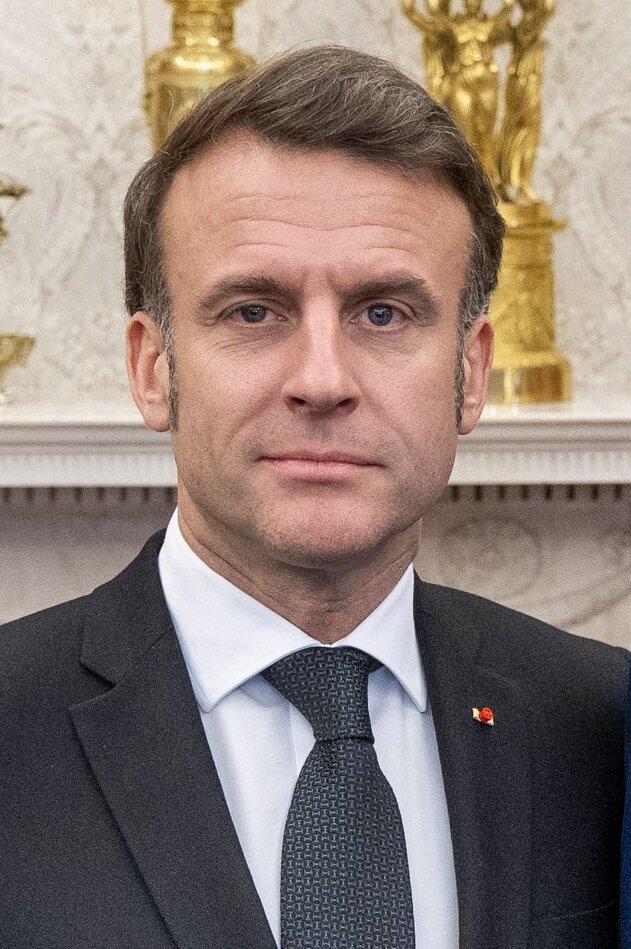Macron Advocates for Palestinian Statehood, Balances Diplomatic Nuances
In a diplomatic gesture that underscores the complexities of international relations, French President Emmanuel Macron recently urged for greater recognition of the state of Palestine. While advocating for Palestinian rights and sovereignty, Macron’s approach reflects a cautious strategy, aimed at fostering dialogue without alienating critical allies in the tumultuous Middle East. As tensions in the region persist, Macron’s call for recognition comes at a pivotal moment, prompting discussions on the balance between political ideals and practical diplomacy. In this article, we delve into Macron’s position, the historical context of the Israeli-Palestinian conflict, and the implications of such a stance on European and global politics.
Macron’s Diplomatic Balancing Act on Palestinian Recognition
In a calculated approach, President Emmanuel Macron has been vocal about the necessity of recognizing the state of Palestine, yet he treads carefully in the politically charged atmosphere surrounding the issue. His recent statements signal a shift towards a more balanced diplomatic stance that aims to address long-standing grievances without alienating Israel or its allies. He emphasizes the need for dialogue, urging for a peaceful resolution achieved through negotiation rather than unilateral actions. This delicate balance reflects a broader strategy, wherein France positions itself as a mediator in Middle Eastern affairs while reigniting discussions around Palestinian statehood.
Macron’s advocacy for Palestinian rights is accompanied by several nuanced propositions, including:
- Support for a Two-State Solution: He continues to champion the idea that only through mutual recognition can lasting peace be achieved.
- Engagement with International Partners: Macron seeks to involve key stakeholders, both in Europe and the Middle East, to foster a collective push towards recognizing Palestine.
- Humanitarian Assistance: Alongside political recognition, he stresses the importance of increasing humanitarian support to improve conditions in Palestinian territories.
| Key Points | Implications |
|---|---|
| Push for Palestinian Recognition | Potential to reshape EU-Israeli relations. |
| Focus on Peaceful Negotiations | Aim to reduce tensions in the region. |
| Increased Humanitarian Aid | Improvement in living conditions could reduce conflict. |
Challenges Facing France in the Push for Palestinian Statehood
As President Emmanuel Macron champions the cause for Palestinian statehood, France encounters a myriad of challenges that complicate its diplomatic efforts. The nation aims to strike a delicate balance between advocating for Palestinian rights and sustaining its longstanding relations with Israel. Macron’s approach is often met with skepticism from various factions within both countries, leading to concerns about the efficacy of his initiatives. The key challenges include:
- Domestic Political Opposition: Divisions within the French political landscape present hurdles for Macron’s foreign policy agenda.
- Alignment with EU Policies: France must navigate the often fragmented stance of the European Union on Israel-Palestine issues.
- International Geopolitical Dynamics: Broader tensions in the Middle East and relations with the United States add layers of complexity to France’s role.
Moreover, public opinion in France reveals a complex tapestry of attitudes towards Israel and Palestine, often influenced by historical ties and recent conflicts. Macron’s government must consider these sentiments while attempting to advocate for a two-state solution. Various civil society groups and NGOs also weigh in, pushing for more assertive actions, yet Macron’s caution reflects a strategy aimed at fostering dialogue rather than exacerbating tensions. The implications of these challenges can be summarized in the following table:
| Challenge | Implication |
|---|---|
| Domestic Political Opposition | Hinders cohesive foreign policy |
| Alignment with EU Policies | Increases diplomatic complexity |
| International Geopolitical Dynamics | Limits actionable strategies |
| Public Opinion | Influences policy effectiveness |
The Impact of EU Relations on Macron’s Palestine Strategy
The dynamics of Macron’s approach to Palestine have been significantly shaped by his government’s relations with the European Union. As the EU grapples with internal divisions over the Israeli-Palestinian conflict, Macron’s strategy reflects a careful balancing act. His administration seeks to advocate for Palestinian statehood while ensuring alignment with broader EU policies, which often emphasize diplomatic caution over unilateral recognition. This necessity to compromise has compelled Macron to tentatively navigate calls for stronger action, avoiding the appearance of straining relations with EU partners who might be resistant to more definitive support.
The interplay between Europe’s geopolitical interests and Macron’s ambitions is further complicated by Israel’s longstanding influence over EU foreign policy. Several factors determine this relationship, including:
- Trade Relations: The EU’s significant trade ties with Israel complicate a unified stance on Palestinian recognition.
- Security Concerns: European nations prioritize regional stability, often leading to a more restrained approach to Palestinian advocacy.
- Political Cohesion: Macron faces pressure from member states that view recognition as a contentious issue.
| Factor | Impact on Macron’s Strategy |
|---|---|
| Trade Relations | Restricts outright recognition of Palestine |
| Security Concerns | Encourages diplomatic diplomacy over bold actions |
| Political Cohesion | Pursues consensus-driven advocacy |
Recommendations for Strengthening Franco-Palestinian Ties
To enhance the relationship between France and Palestine, a multifaceted approach is essential. Cultural exchanges can serve as a bridge for understanding, fostering a stronger sense of identity between the two nations. Initiatives such as artist residencies, film festivals, and academic partnerships can showcase Palestinian culture in France while promoting French art and literature in Palestine. Moreover, diplomatic dialogues should be prioritized to address mutual concerns, ensuring that both parties communicate their aspirations effectively.
Investment and economic cooperation can also play a vital role. A focus on joint ventures in technology, agriculture, and tourism could unlock potential growth avenues and promote sustainable development in Palestine. Additionally, establishing trade missions could facilitate direct business exchanges, providing platforms for Palestinian products to gain visibility in French markets. For optimal impact, a framework to monitor progress and create feedback loops should be implemented to adjust strategies in response to developments in Franco-Palestinian relations.
In Retrospect
In conclusion, President Emmanuel Macron’s recent advocacy for the recognition of the state of Palestine underscores a nuanced yet cautious approach to a long-standing geopolitical issue. While he has amplified France’s support for Palestinian statehood, the measured tone of his rhetoric reflects the delicate balance he aims to strike between fostering diplomatic relations and addressing domestic and international opposition. As Macron navigates these complexities, the future of France’s involvement in the Israeli-Palestinian conflict remains uncertain, but his latest statements signal a willingness to engage more actively in the dialogue for peace. The ramifications of this push for recognition, tempered by the realities of the region, will be closely watched by both allies and adversaries alike.




